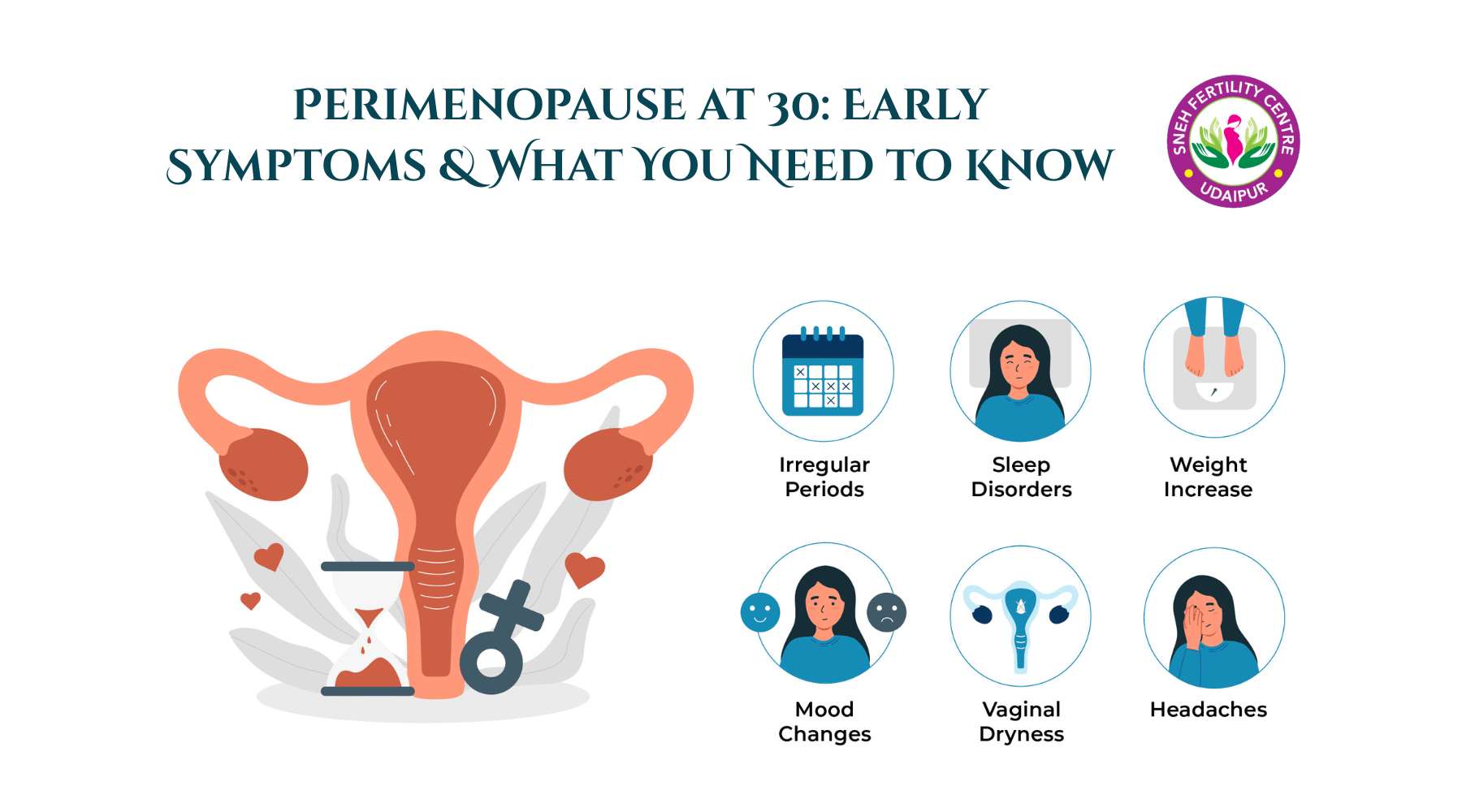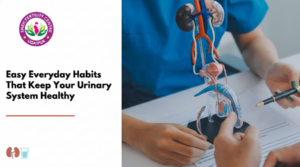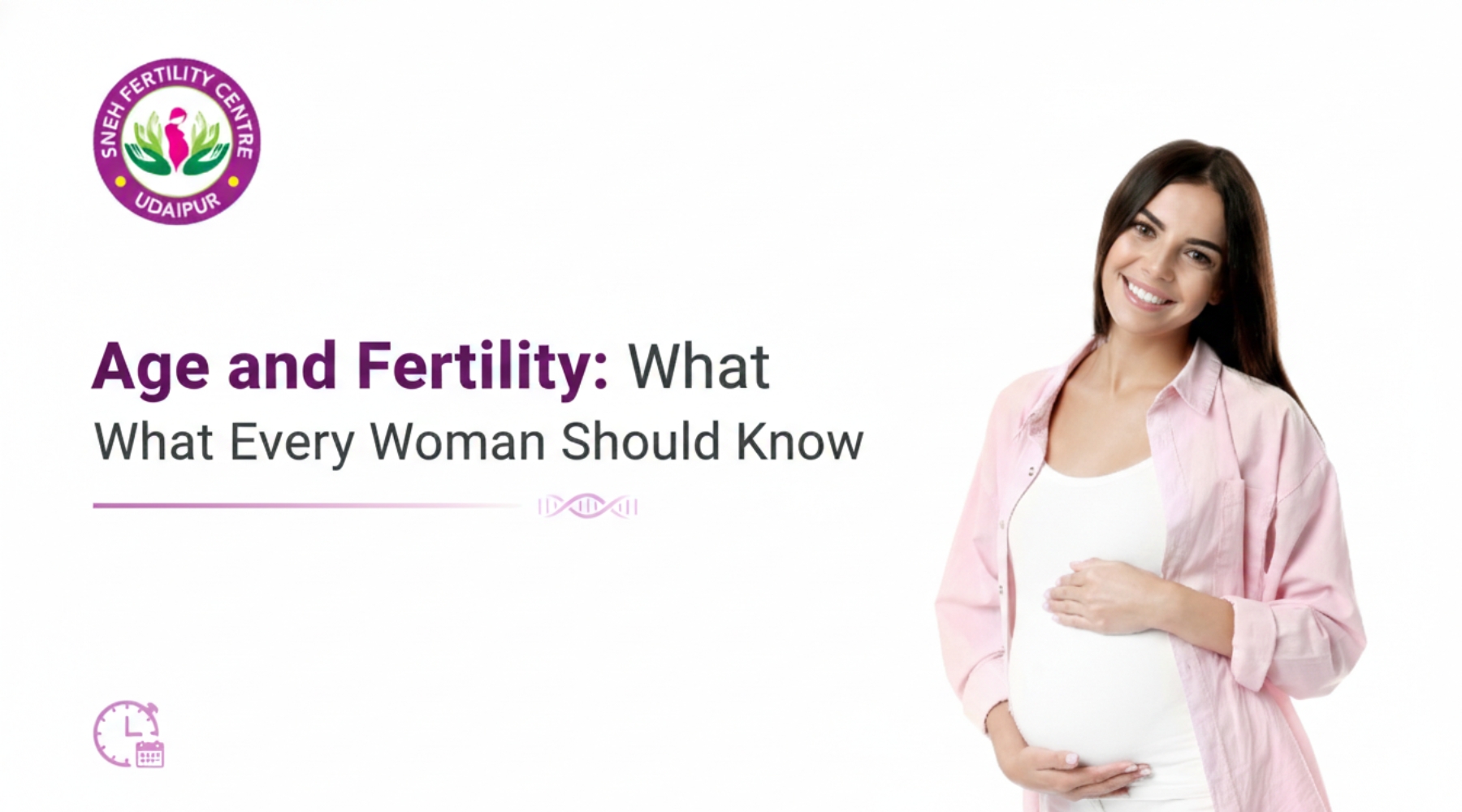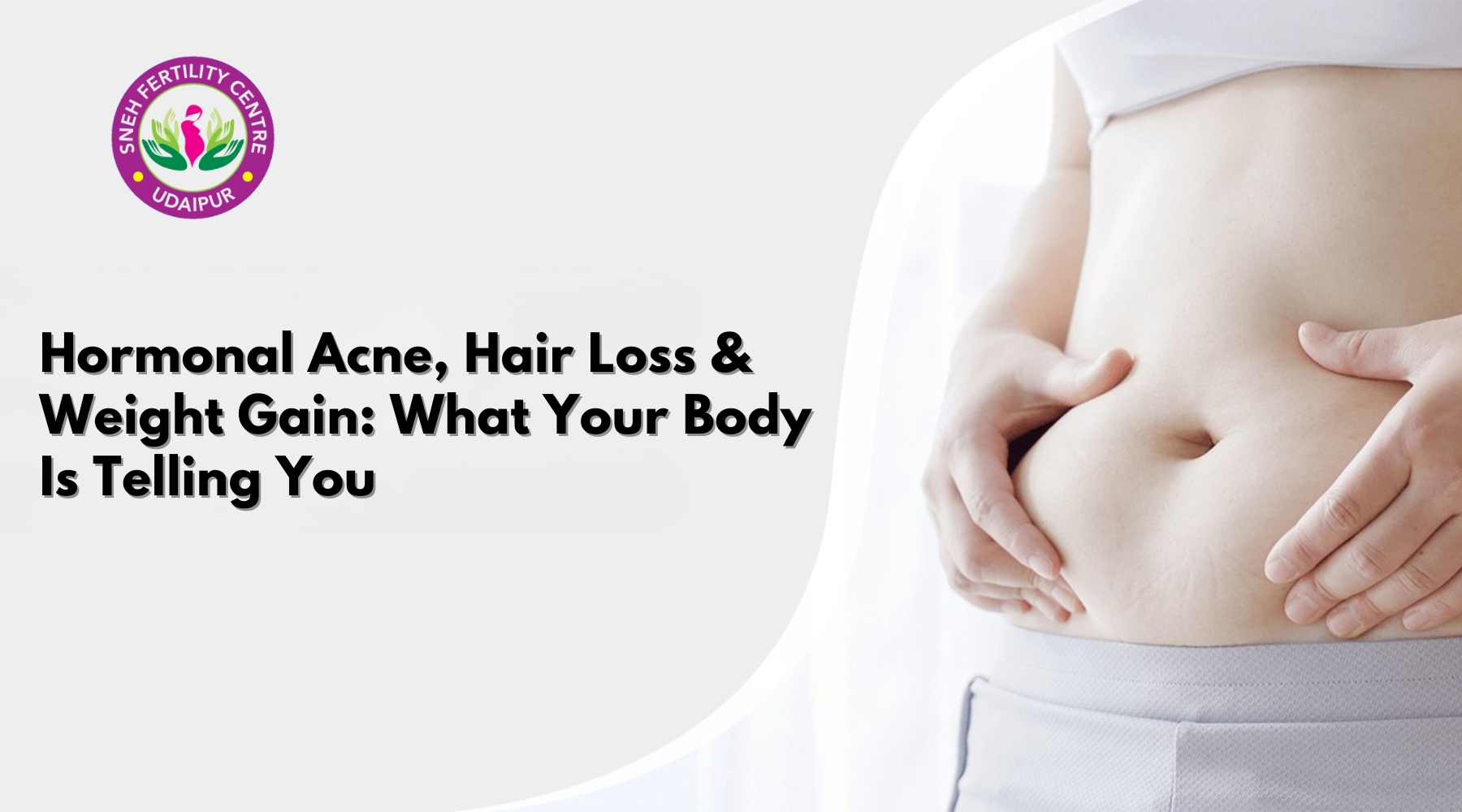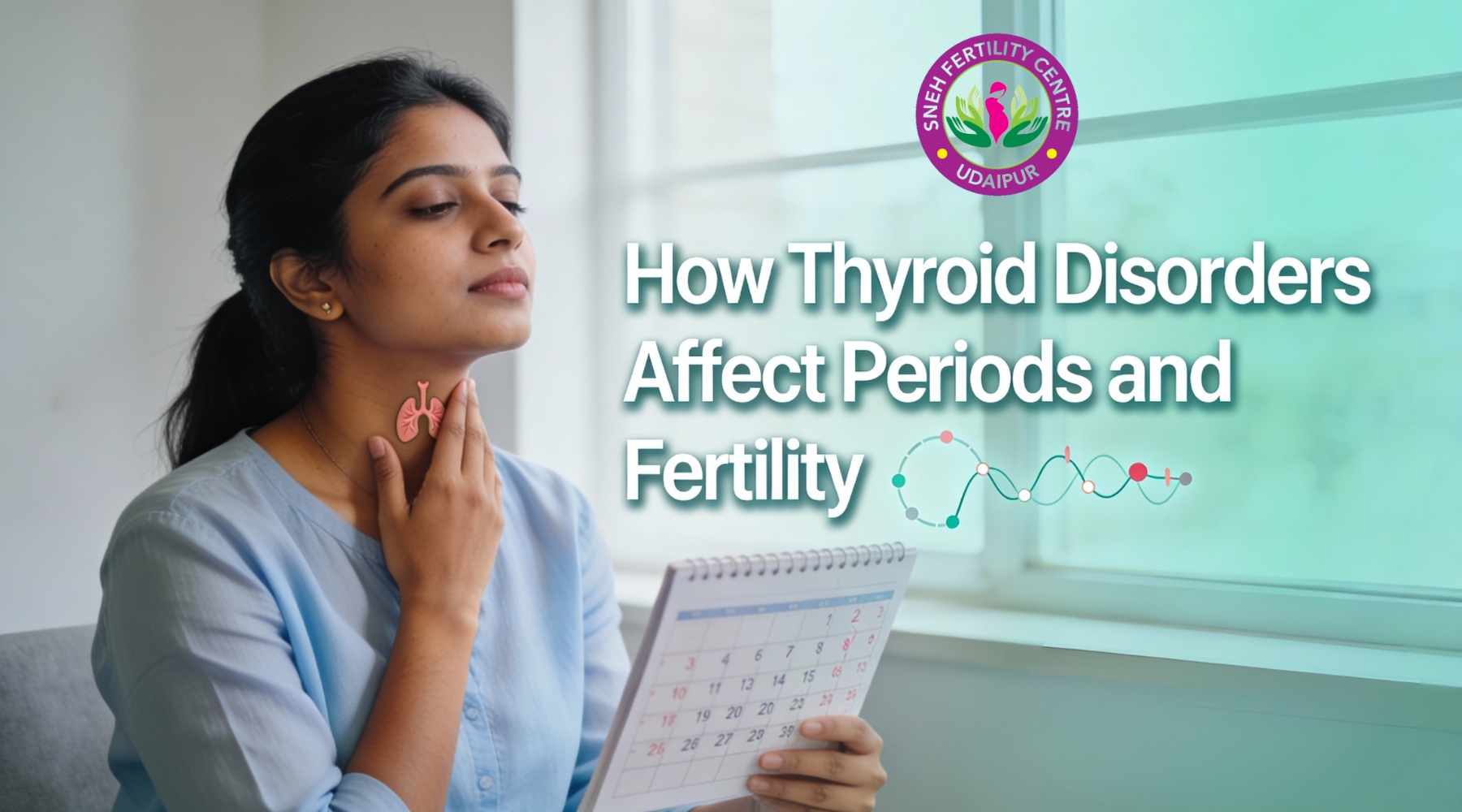Can You Have Perimenopause at 30? Yes – Here Are the Signs
If you are in your early 30s, you might have some questions about your body. If you have irregular periods, trouble sleeping, or mood swings, you are not alone. These changes can be concerning. Most women think perimenopause only affects women in their 40s or 50s. But here’s the truth: more women are experiencing these hormonal changes earlier than ever before.
Your body might be trying to tell you something important. And recognizing the signs early can make all the difference for your health and fertility.
What Is Perimenopause?
Perimenopause is your body’s transition phase before menopause. It’s when your ovaries gradually produce less estrogen, causing your hormones to fluctuate like a roller coaster.
What happens during perimenopause:
- Your menstrual cycle becomes unpredictable
- Hormone levels go up and down
- Your body prepares for menopause (when periods stop completely)
Most women start perimenopause between ages 40-44, but perimenopause can begin as early as your 30s. The earlier you recognize early perimenopause symptoms, the better you can manage them and protect your long-term health.
If left unnoticed or unmanaged, these symptoms can impact both your physical and mental health.
Early Perimenopause Symptoms Women Often Miss
The Warning Signs to Watch For:
- Irregular Periods
- Cycles become shorter or longer
- Heavier or lighter bleeding than usual
- Skipping periods
- Spotting between periods
- Sleep Problems
- Difficulty falling asleep
- Waking up multiple times at night
- Night sweats that drench your sheets
- Feeling exhausted despite sleeping 8 hours
- Hot Flashes
- Sudden intense heat in your face and chest
- Sweating even in cool temperatures
- Flushed, red skin
- Mood Changes
- Increased irritability or anxiety
- Sudden mood swings
- Feeling down without clear reason
- Less patience than usual
- Other Physical Changes
- Unexplained weight gain (especially belly fat)
- Vaginal dryness
- Reduced sex drive
- Brain fog or trouble concentrating
- Joint pain
If you are experiencing several of these symptoms, it’s time to talk to your gynecologist.
Why Are More Women in Their 30s Getting Perimenopause?
Modern lifestyle factors are causing earlier hormonal changes:
- High stress levels from work and personal life
- Poor sleep habits and irregular schedules
- Processed foods and unhealthy eating patterns
- Lack of exercise or overexercising
- Environmental toxins in plastics and cosmetics
- Delayed childbearing affecting natural hormone levels
These factors combined can trigger perimenopause symptoms earlier than previous generations experienced.
Why You Should See Your Gynecologist NOW
1. Protect Your Fertility
If you’re planning to have children (now or later), this is crucial. Fertility declines after age 30, and early perimenopause makes conception more challenging.
Your doctor can:
- Test your hormone levels and egg reserve
- Discuss fertility preservation options and solutions like egg freezing
- Create a timeline for family planning
- Help you understand your reproductive window
Don’t wait. The earlier you know what’s happening, the more options you have.
2. Prevent Future Health Problems
Lower estrogen levels increase your risk for:
- Osteoporosis (weak bones)
- Heart disease and high blood pressure
- Mental health issues like anxiety and depression
Catching these risks early means you can prevent them with proper care and lifestyle changes.
3. Manage Symptoms Effectively
Getting help now means less intense symptoms later. You’ll experience:
- Fewer or milder hot flashes
- Better sleep quality
- More stable moods
- Higher energy levels
- Better quality of life overall
4. Rule Out Other Conditions
Sometimes perimenopause-like symptoms could actually be:
- Thyroid problems
- PCOS (Polycystic Ovary Syndrome)
- Vitamin deficiencies
- Other hormonal imbalances
Your gynecologist can run proper tests to identify the real cause.
What to Ask Your Gynecologist
Walk into your appointment prepared with these important questions:
About Your Hormones:
- Are my hormone levels normal for my age?
- Could this be perimenopause or something else?
- Should I get my thyroid checked?
About Your Symptoms:
- How can I manage hot flashes naturally?
- What helps with mood swings and sleep problems?
- Why am I gaining weight?
About Your Future:
- How will this affect my fertility?
- Should I consider egg freezing?
- What treatment options do I have?
Pro tip: Keep a symptom diary for 2-3 months before your appointment. Track your period dates, symptoms, energy levels, and mood changes. This helps your doctor give better advice.
Simple Lifestyle Changes That Actually Work
Small changes can make a big difference in managing perimenopause symptoms:
1. Eat Smart
Foods that help:
- Fatty fish (salmon, sardines)
- Leafy greens and vegetables
- Nuts, seeds, and whole grains
- Yogurt and fermented foods
- Calcium-rich foods for bone health
Limit these:
- Sugar and processed foods
- Caffeine (especially after 2 PM)
- Alcohol and spicy foods (can trigger hot flashes)
2. Move Your Body
Just 30 minutes of exercise most days helps balance hormones and strengthen bones:
- Walking (easiest and effective)
- Yoga (great for stress)
- Swimming (easy on joints)
- Weight training (builds bone density)
3. Fix Your Sleep
- Keep your bedroom cool (18-20°C)
- No phones 1 hour before bed
- Avoid heavy meals after 7 PM
- Get morning sunlight to regulate sleep cycles
4. Manage Stress
- Practice deep breathing (5 minutes daily)
- Try meditation apps
- Journal your thoughts
- Make time for hobbies you enjoy
- Take nature walks
5. Consider Supplements (After Doctor Approval)
- Calcium (1,000-1,200 mg daily)
- Vitamin D (2,000 IU daily)
- Omega-3 fish oil
- Vitamin B complex for energy
- Magnesium for better sleep
When to See a Doctor Immediately
Seek medical attention right away if you experience:
- Very heavy bleeding (soaking through a pad every hour)
- Bleeding lasting more than 7 days
- Severe pelvic pain
- Severe depression or dark thoughts
- Chest pain or heart palpitations
These could indicate serious problems needing immediate care.
Get Expert Help at Sneh Fertility Centre
At Sneh Fertility Centre, we are one of the best gynecologist clinics in Udaipur. We focus on women’s health at every stage of life. Whether you’re experiencing early perimenopause symptoms or concerned about fertility, we’re here to help.
Don’t wait for symptoms to worsen. The sooner you address perimenopause, the easier it is to manage.
Book your appointment with the best gynecologist in Udaipur today and take control of your health.


